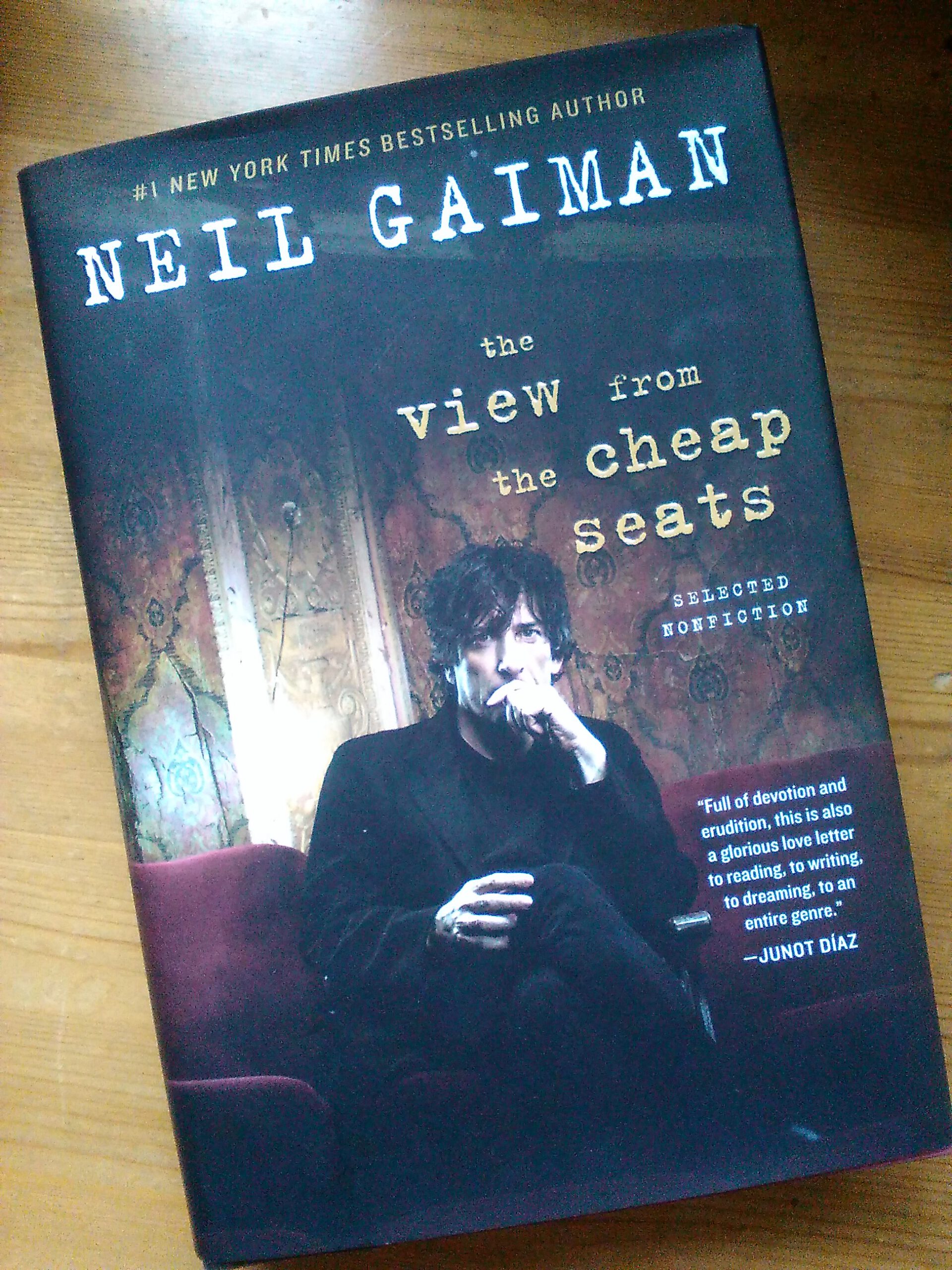
Pep Talk von Neil Gaiman
Nicht nur im Rahmen des Nanowrimo, jenes verrückten Versuches, während eines Monats ein Buch zu schreiben (zumindest 50.000 Wörter) sondern generell, kommt für mich bei jedem Buchprojekt früher oder später der Punkt, wo ich alles hinschmeißen möchte.
Dann lese ich gerne diesen Pep Talk meines Lieblingsautors, Neil Gaiman und erinnere mich daran, dass es den ganz Großen ganz genauso geht.
Und dann koche ich mir einen Tee und schreibe weiter.
Dear NaNoWriMo Author,
By now you’re probably ready to give up. You’re past that first fine furious rapture when every character and idea is new and entertaining. You’re not yet at the momentous downhill slide to the end, when words and images tumble out of your head sometimes faster than you can get them down on paper. You’re in the middle, a little past the half-way point. The glamour has faded, the magic has gone, your back hurts from all the typing, your family, friends and random email acquaintances have gone from being encouraging or at least accepting to now complaining that they never see you any more—and that even when they do you’re preoccupied and no fun. You don’t know why you started your novel, you no longer remember why you imagined that anyone would want to read it, and you’re pretty sure that even if you finish it it won’t have been worth the time or energy and every time you stop long enough to compare it to the thing that you had in your head when you began—a glittering, brilliant, wonderful novel, in which every word spits fire and burns, a book as good or better than the best book you ever read—it falls so painfully short that you’re pretty sure that it would be a mercy simply to delete the whole thing.
Welcome to the club.
That’s how novels get written.
You write. That’s the hard bit that nobody sees. You write on the good days and you write on the lousy days. Like a shark, you have to keep moving forward or you die. Writing may or may not be your salvation; it might or might not be your destiny. But that does not matter. What matters right now are the words, one after another. Find the next word. Write it down. Repeat. Repeat. Repeat.
A dry-stone wall is a lovely thing when you see it bordering a field in the middle of nowhere but becomes more impressive when you realise that it was built without mortar, that the builder needed to choose each interlocking stone and fit it in. Writing is like building a wall. It’s a continual search for the word that will fit in the text, in your mind, on the page. Plot and character and metaphor and style, all these become secondary to the words. The wall-builder erects her wall one rock at a time until she reaches the far end of the field. If she doesn’t build it it won’t be there. So she looks down at her pile of rocks, picks the one that looks like it will best suit her purpose, and puts it in.
The search for the word gets no easier but nobody else is going to write your novel for you.
The last novel I wrote (it was ANANSI BOYS, in case you were wondering) when I got three-quarters of the way through I called my agent. I told her how stupid I felt writing something no-one would ever want to read, how thin the characters were, how pointless the plot. I strongly suggested that I was ready to abandon this book and write something else instead, or perhaps I could abandon the book and take up a new life as a landscape gardener, bank-robber, short-order cook or marine biologist. And instead of sympathising or agreeing with me, or blasting me forward with a wave of enthusiasm—or even arguing with me—she simply said, suspiciously cheerfully, “Oh, you’re at that part of the book, are you?”
I was shocked. “You mean I’ve done this before?”
“You don’t remember?”
“Not really.”
“Oh yes,” she said. “You do this every time you write a novel. But so do all my other clients.”
I didn’t even get to feel unique in my despair.
So I put down the phone and drove down to the coffee house in which I was writing the book, filled my pen and carried on writing.
One word after another.
That’s the only way that novels get written and, short of elves coming in the night and turning your jumbled notes into Chapter Nine, it’s the only way to do it.
So keep on keeping on. Write another word and then another.
Pretty soon you’ll be on the downward slide, and it’s not impossible that soon you’ll be at the end. Good luck…
Neil Gaiman
Quelle: Nanowrimo Pep Talks